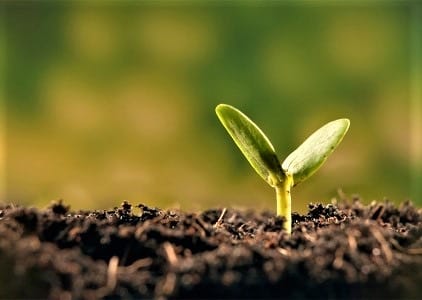The Ripening Fruit
Patience and time do more than strength and rage. What patience does not conquer needs a grave to be buried in. Most of the things we identify as problems stay problems only for the time that we set for them.


Patience and time do more than strength and rage. What patience does not conquer needs a grave to be buried in. Most of the things we identify as problems stay problems only for the time that we set for them.


Written By: Aama Harwood
"Patience and time do more than strength and rage. What patience does not conquer needs a grave to be buried in. Most of the things we identify as problems stay problems only for the time that we set for them. There is a proverb from the Valley of the Djoliba (Niger River) that says that there is no need to try to kill your enemy. “Be patient, and if you live long enough, you will see the day that morticians pass with the body of your enemy”. Most of our pains and the wrongs we do to our surroundings come from our tendency to force our will on the natural rhythm of world transformation."
- Neb Naba Lamoussa Morodenibig
In my first semester as an initiate, there was one principle that tested me more than any other. At every turn, with each genie, coffin, and monument I encountered—waiting for me to approach, open, enter, or break it—the answer was always the same: patience. There were moments when I found myself anxious, my mind racing, wringing my hands over how to navigate the next challenge. But then, in the quiet of my own reflection, I began to understand how patience, within the context of initiation, was not just a waiting, but the space to evolve, to strengthen, and become something new.
I began to contemplate how often I rush my own becoming, without consideration for the reality of the becoming of all things. As I watch the nature around me grow, shift, and change, I see that it does not happen in an instant. It is molded by wind, sun, rain, snow, seasons, and time. The strongest, most yielding and unyielding aspects of nature are the ones that take their time to establish themselves where they are. It is then, I began to realize that I had planted a seed within myself the day I became an initiate. Just like the seed in the soil that I do not expect to eat the fruit from the next day, I have no reason to demand such immediacy from my own growth.
I now understand that growth, like nature’s processes, unfolds slowly, often in silence, and always at its own pace. In this, I began to feel an aspect within myself uncoil. Given the permission to become something new as I reach for light in the sky. Bending my way through heat and storm, cold and droughts, waiting patiently for the precise moment to bloom.
Historically and usually, I’ve always been in a rush. There’s a part of me that craves immediacy—the desire to do it quickly, to have it now, to feel as though it was done yesterday. I've always been like this. I revel in the sensation of speed, in the feeling of moving swiftly through life. It gives me a sense of exhilaration and accomplishment, as if I’m always in motion, always achieving. I’ve always been drawn to tasks, to-do lists, and all of that, but patience is teaching me that life isn’t merely a journey from point A to point B. The only certainty on this path is its ultimate destination that we all share. So, I find myself asking: what is the quality of the history I am writing if I am always in a hurry to finish what I never had the chance to cultivate?
Perhaps this is what the ancestors meant when they said the bitter and the sweet are given the same consideration. The bitter herb is no less vital than the sweet fruit; both have their roles,
and both require time to become what they are meant to be. The bitterness heals, the sweetness nourishes, but neither manifests in haste. They unfold at their own pace, in their own rhythm—each moment of preparation essential to the whole.
So if I’m always looking for outcomes, and judging myself or others by the same merit, I am inherently sucking out the flavor of life itself. This is because things change, evolve and become with the timing of patience.
It is the fragility of the ego that seeks to control the timing of things, to demand outcomes before they are ready, like a child picking unripe fruit, just to show how many they can carry. But true evolution unfolds in patience; roots sink deeper in the quiet of waiting. Patience, then, becomes a tool for our enlightenment—one that does not require force. And for me, this is perhaps the greatest challenge, because my nature has always been to exert. Yet, patience gently reminds me that there is value in what often goes unnoticed. Patience often rewards through subtlety and shifting, evolving tides.
When I am patient, perhaps there is only one fruit, but at least it is ripe and sweet. It may be the labor of nurture and countless hours methodically tending to the self in a way that allows it to become something new, to see what it had not seen before. It takes time to weed out the surrounding thoughts and motives to make sure whatever we are building can see the sun and keep it in view.
As I continue to sit with patience, I begin to see it as one of the most direct ways I can think of to show love or reverence towards someone or something. To another seeker, patience says, "I see you are becoming, and I am becoming with you. I see you are evolving, and I am evolving with you.” Patience is humble, and yet so strong; it is the silence of the things you do not say, and the wisdom in the things you do not do—because you understand that to act prematurely would be to pick the unripe fruit. Patience is the willingness to wait for the moment that is tender, ripe, and sweet, and then offer that as a gift.
To our ancestors, patience says, "I trust you and I trust in the unfolding of things, in accordance with your timing and nature’s timing."
Patience is, therefore, the fuel of our evolution, a principle of becoming and the preservation of its ever-evolving growth. It is the backbone of humility, the threshold of love and strength. The willingness to sit in the silence, in the unknown, and witness the natural unfolding of things—drinking in each moment, savoring each bite, truly taking in the surroundings. It is the practice of being present, instead of always rushing to the other side and finding that there is so much that was missed in the accomplishment of things that will usually just happen in their own time.